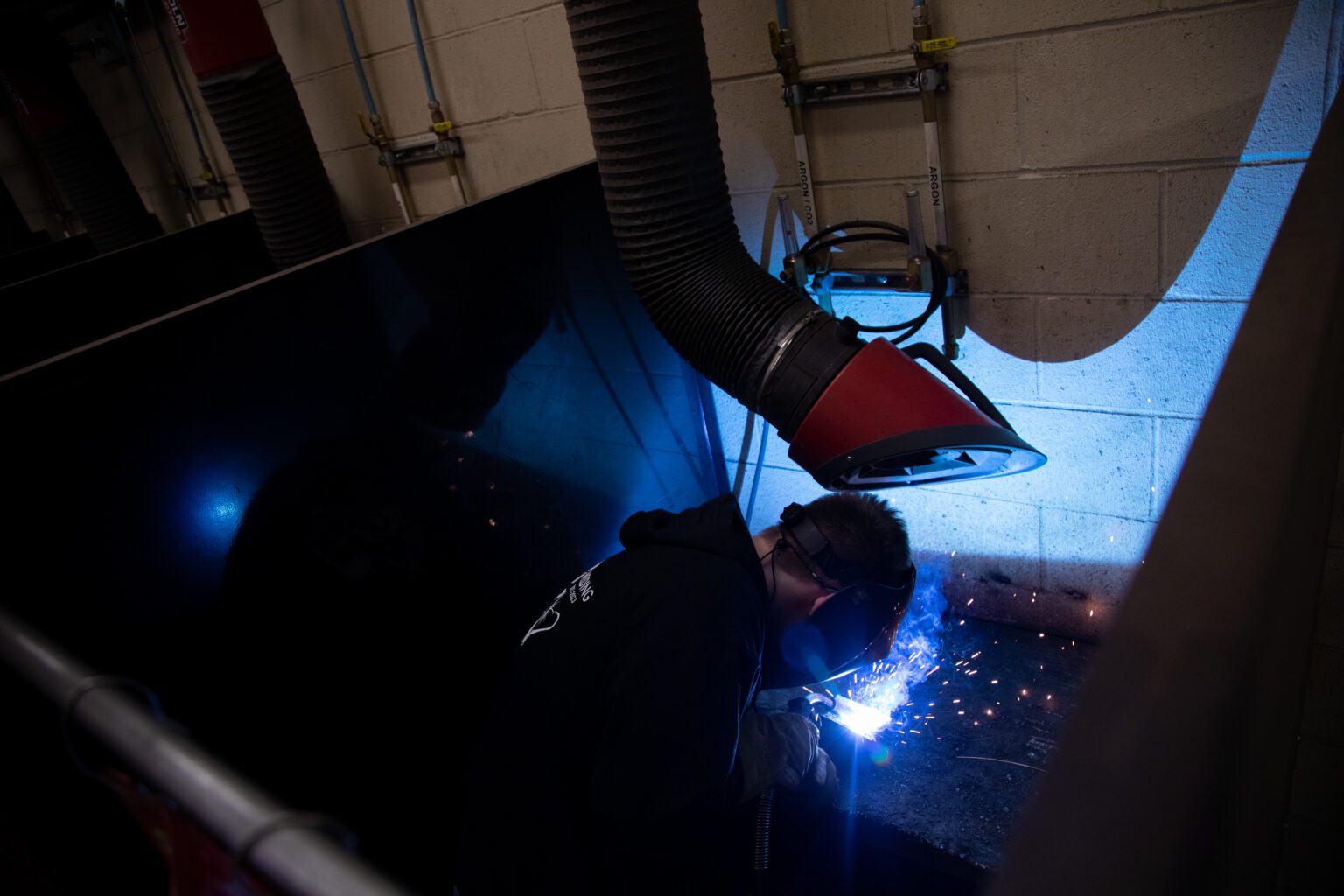Around the country, alarm bells have sounded over skilled labor shortages. In Washington state, officials and educators are looking for ways to curb the decline.
Over the last several years, the state has worked to expand career- and technical-education skill centers, building 17 and reaching 92% of high school students. A skill center would provide instruction that is too expensive or specialized for most school districts to offer. Skills programs offer an alternative to college and a direct pathway to skilled jobs for high school students.
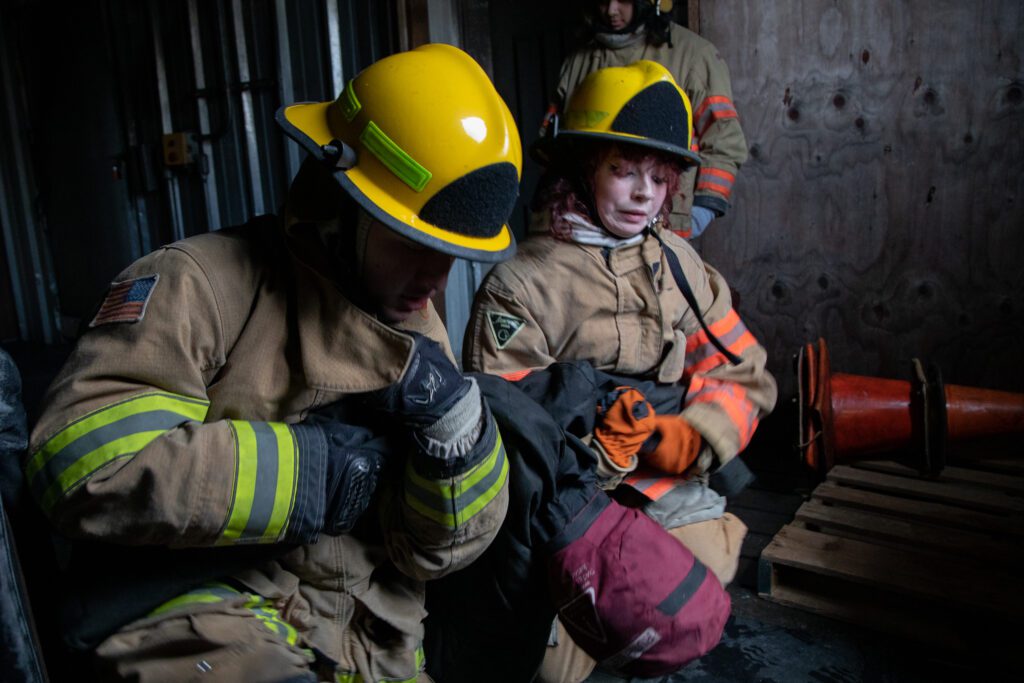
Local leaders are now working to create awareness and gather support to build a new skill center in Whatcom County. The Washington State Skills Center Association recently acknowledged Whatcom County as a “skill center desert” and has prioritized the county as a location for a future campus, according to a Meridian School District news release.
“I worry about the students who leave high school, not really knowing what they’re going to do,” said Lynette Brower, Northwest Career and Technical Academy director. “I think the Skill Center is a beautiful fit for those students.”
Funding for construction of a center could be provided by the state Legislature. Expanding skill centers in Washington is a priority of the Office of Superintendent of Public Instruction. Students could take courses through the skill center for free as part of K–12 funding.
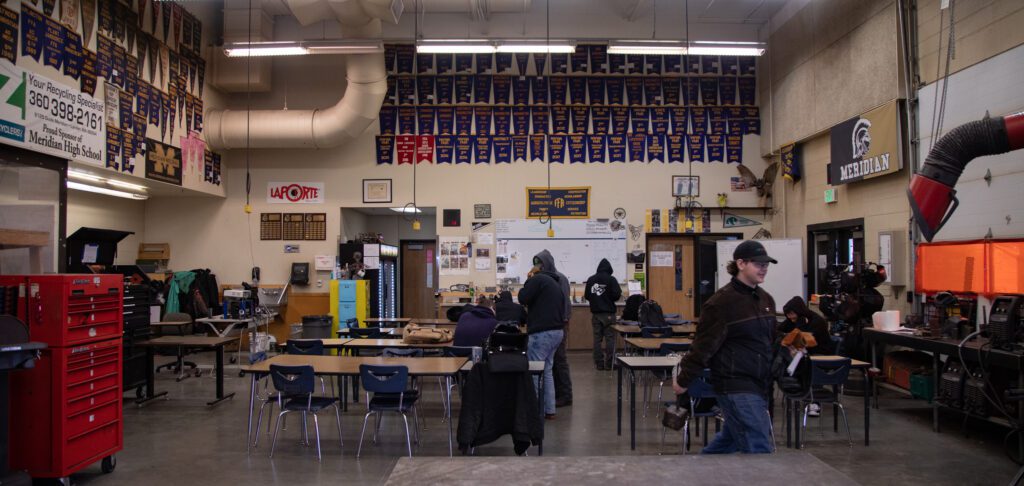
Families and students in Whatcom County participated in a survey about a possible skills center during February. More than 1,200 people responded and out of 386 students surveyed, 72% said they would be somewhat or very interested in attending a skill center.
“There is clear community support for a skills center in Whatcom County,” Brower said.
Currently, the Northwest Career and Technical Academy in Mount Vernon is the closest skill center to Whatcom County. Around 80 students take advantage of the academy’s courses in criminal justice, video game development and culinary arts at the Mount Vernon campus or satellite campuses, like Meridian High School, where students can take courses in welding and fire science.
Many high schools also offer various CTE courses on their home campuses; Ferndale students can take aquaculture and Lynden students woodworking. A skill center would enable students to access a wider range of skills classes, and the center would be able to invest in curriculum, equipment and programs that many school district would not be able to afford or have the interest for. Students also take advantage of some trades courses and earn credit through local colleges, like Bellingham Technical College and Whatcom Community College.
Several local school districts, including Bellingham and Ferndale, have voiced support of the skill center.
“We are really excited about the possibility of bringing a skills center to Whatcom County,” Superintendent James Everett stated in a March 3 release. “It is incredibly important to provide our students this access to pursue their passions.”
CDN met up with some local high school students to find out more about their experiences in skills courses.
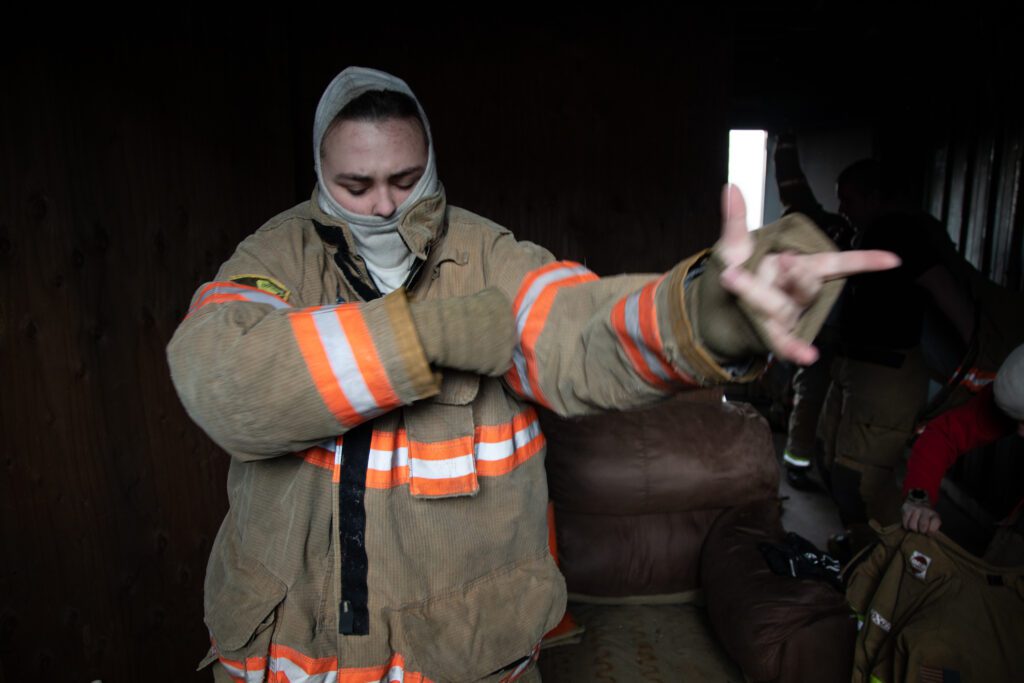
Riley Jaworsky
Jaworsky is a Bellingham High School senior who spends three days a week at Meridian taking fire science courses. Two days a week, the class heads to Whatcom County Fire Station 12 where they run drills and learn skills that firefighters and paramedics use on the job. The classes are run by First-In Training and Education (FITE), which seeks to introduce the younger generation to firefighting and partners with skill centers around Washington.
Why are you taking fire science?
At first, I didn’t know, but I think it’s just become a passion of mine that I wanted to help people in what ways I could.
What is your favorite part of the fire science program?
It’s probably just the sense that this class is a family, and there’s a great sense of camaraderie within it. Other than that, the class actually teaches you practical skills that you can use going forward in life as opposed to the monotony that exists in almost every other classroom environment.
What is the value of schools having more career pathways and technical courses?
The value is that it allows students who might be at risk of failing high school to find something that they truly enjoy and allows them to excel in that field. It takes them, and it teaches them practical skills, as well as essential knowledge that they can truly use later in life, either at a job or even if it was a hobby.
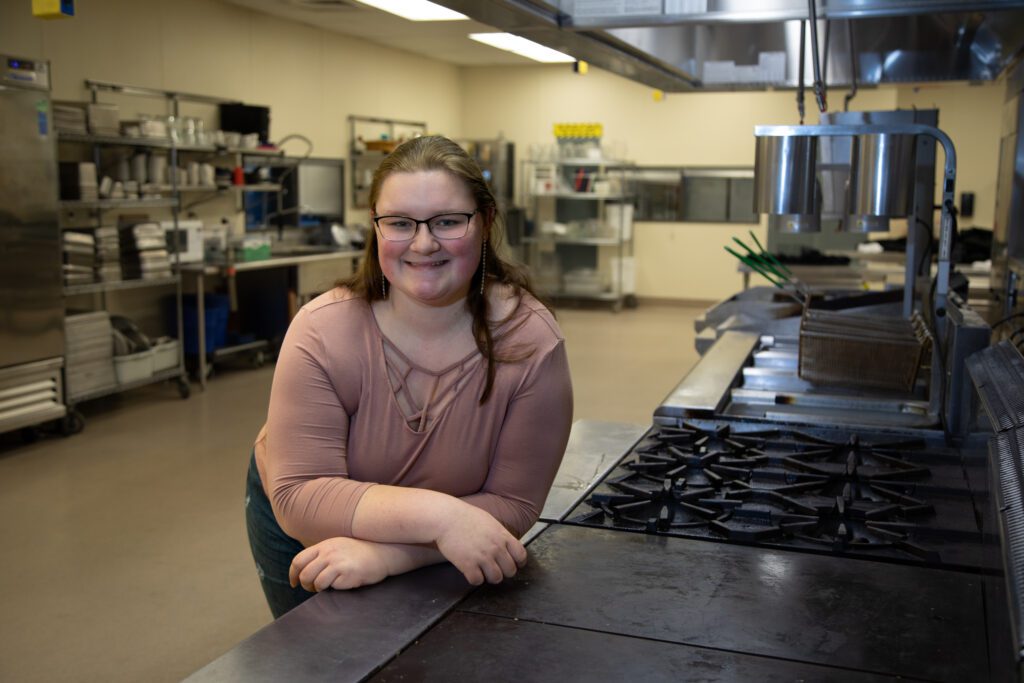
Lexi Garvin
Garvin is a Meridian High School junior who travels to NCTA in Mount Vernon every morning to take culinary arts classes. She hopes to go into culinary arts and be a chef after she graduates high school. The class is taught by a chef and includes visits from local chefs, restaurants and chains to teach students about the industry. Students also learn customer service by running Bytes, a deli on campus. A skill center in Whatcom County would allow students to access these courses without having to travel as far.
Why did you decide to do this culinary program?
Starting in high school, I was really interested in the foods class that one of my teachers offered. I started to want to look into being a chef, and I kind of just kept going with that and didn’t want to stop. So, when I saw flyers for this place, I looked into it, and then ended up talking with my counselor and finding that this was going to be a perfect fit for me.
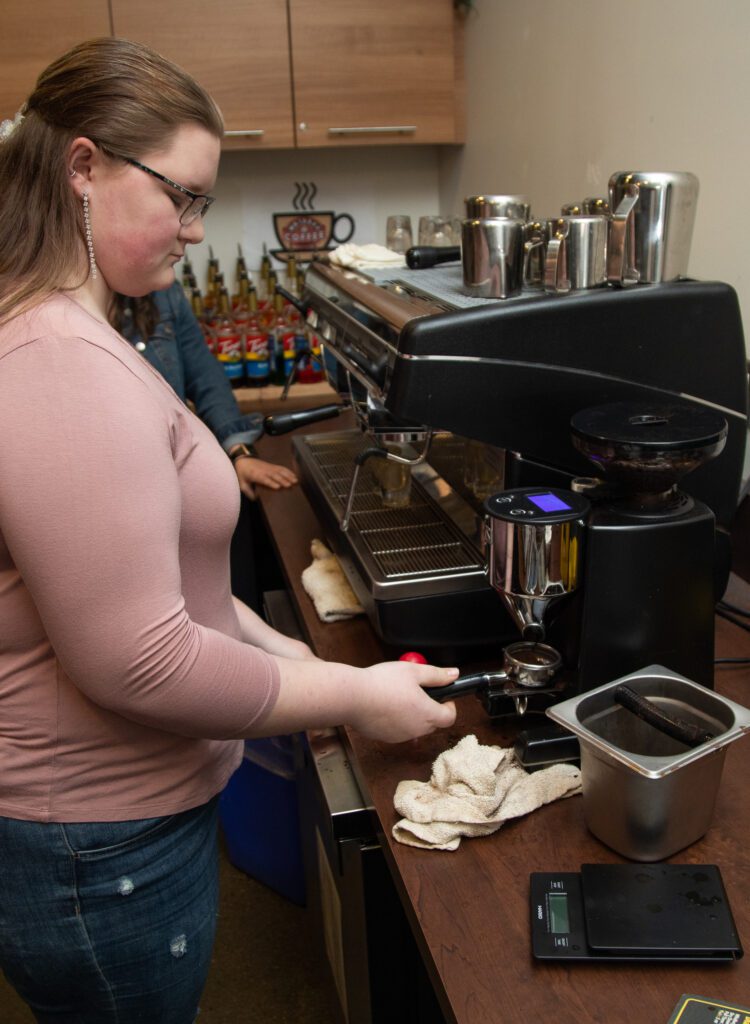
What types of things do you learn in your classes?
We mostly learn about different techniques, techniques to cook. We also learn a lot through the deli on customer service — both the providing [of] food and creating food.
What is the value of having the opportunity to learn skills that apply to your future career while still in high school?
Talking with my parents about it, they never even had anything remotely close to this, being able to go to a college in high school and get credit for both. You’re practically working a job and being paid in experience rather than just sitting in a classroom learning the same thing every day.
What would you say to other students who are looking at going to NCTA for culinary or another program?
Go for it. It’s awesome. Unlike high school, just about everybody here is going to be interested in the same thing you are. Everybody is very devoted to what they got into.
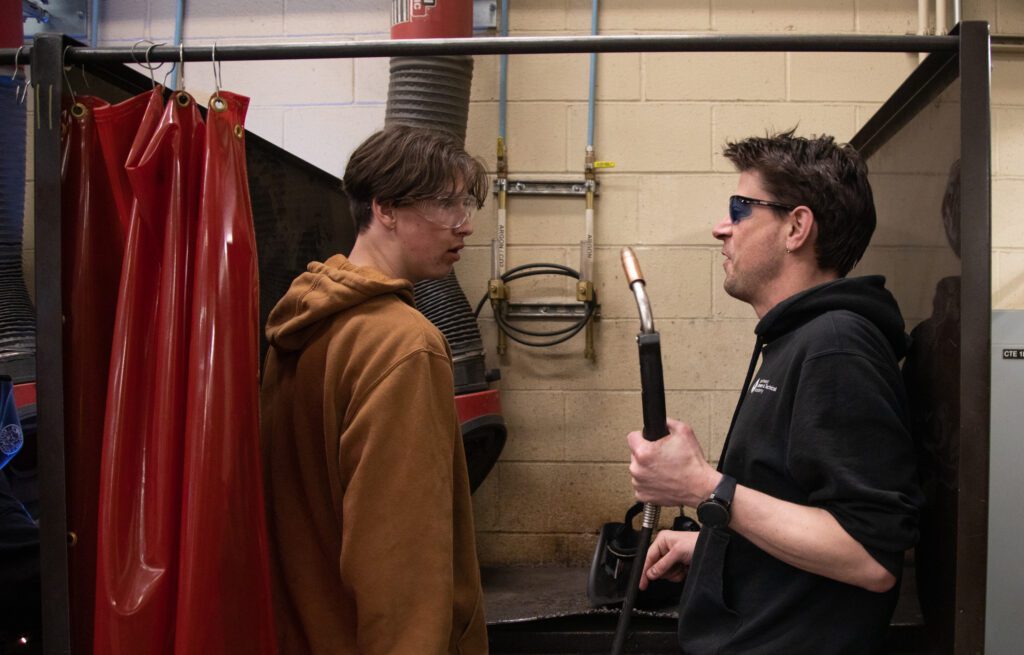
Christian Clawson
Clawson is a Meridian High School junior in the welding program. He takes classes with instructors who have worked as welders in Whatcom County, like Shawn Sellers. The program offers direct connections with industry professionals and helps students navigate job and internship applications for post-graduation.
Why did you decide to do the welding program?
My grandpa was a welder, and I have a lot of family history behind the trades.
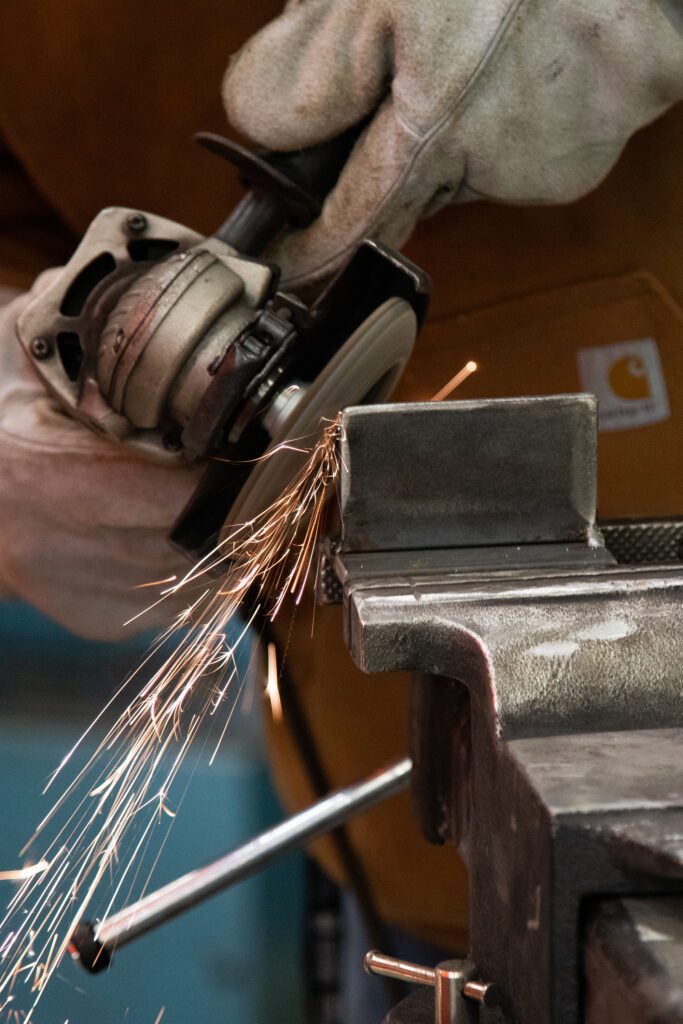
What do you learn in your classes?
So depending on the week, we start in the classroom and we work on bookwork. That’ll just tell us the theory, the basics behind what we should do with welding, what each gear is meant to do and how to prepare it. In [the shop], we’ll weld. We have a bunch of materials in the scrap yard, and we’ll build various things depending on what is needed during the unit.
What is the value of learning these skills before you graduate high school?
This gets me an amazing amount of time to figure out if I still want to do this later on and actually how to do it before I step out into the trade.
What’s your favorite thing you’ve made?
I’ve had a couple people commission me to make a couple things. I made something for the baseball team. It’s like an ‘M,’ and then it’s like a baseball plate [made] out of metal.
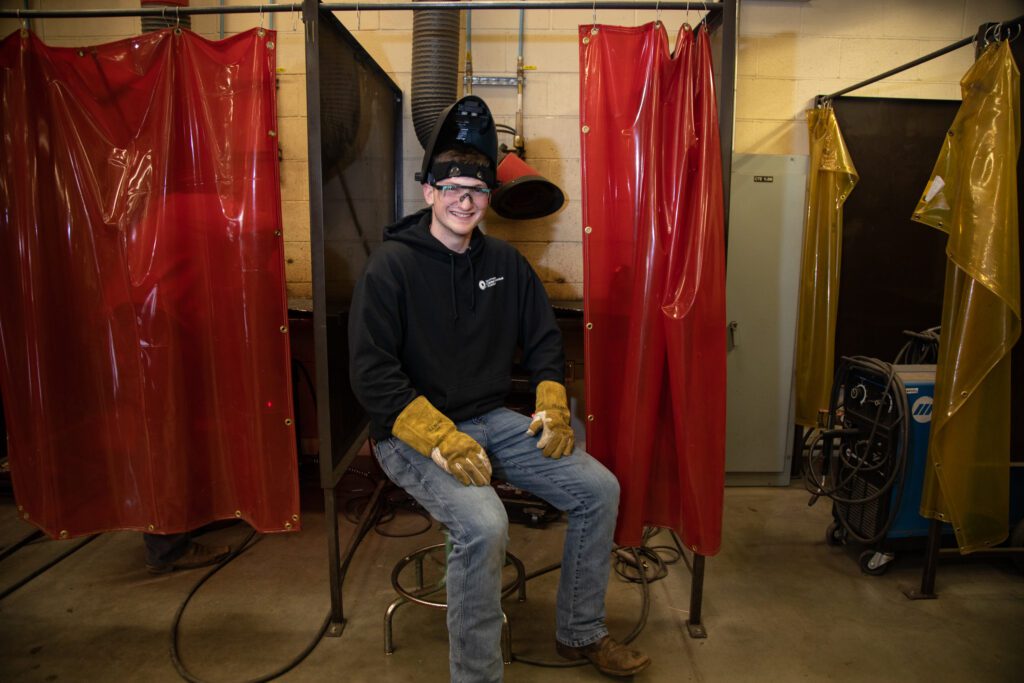
Trevor Goltz
Goltz is a Blaine High School senior who travels to Meridian High School each morning to take advantage of the welding courses. He hopes to become a welder in the maritime industry after he graduates.
Why are you taking welding?
I like to work with my hands, and it’s a good alternative to sitting in a classroom with a book. I was struggling with that.
What’s your favorite thing about welding?
I can shut my hood and go to town at my own pace. There’s an immediate result, and I can see right away what I’m working on.
How does it feel to have your school provide other career pathways?
Really good. All I’ve ever heard was, ‘Go to college, go to college.’ Originally, I was trying to make plans and think about college but nothing was really jumping at me. Now, I’m thinking about trade school, but I don’t have to go off to university. That’s what I thought the only option was.
What’s your favorite thing you’ve made?
The holiday project or the pressure vessel. I made a snowman out of some horseshoes and made the top hat and a little candy cane. [The pressure vessel] started with four-by-four sheets of metal, turned it into a cube and took a little pipe and welded around the caps. We put 30 pounds of pressure into it to make sure it holds.
This story was updated to include information regarding other opportunities for students to explore the trades in Whatcom County, beyond a skill center. The story was updated to reflect this change on April 3 at 11:29 a.m.

